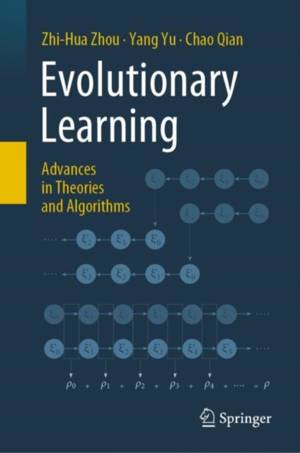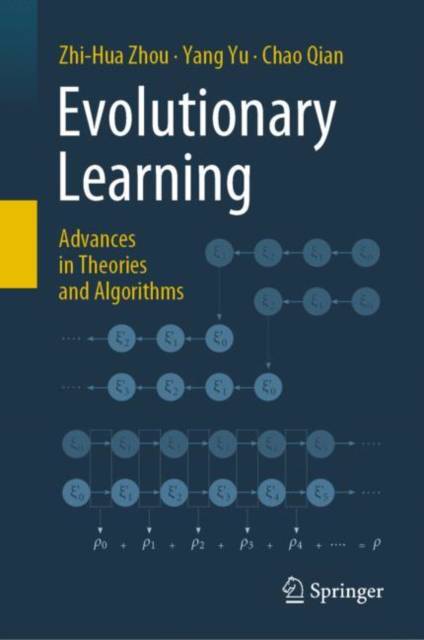
- Afhalen na 1 uur in een winkel met voorraad
- Gratis thuislevering in België vanaf € 30
- Ruim aanbod met 7 miljoen producten
- Afhalen na 1 uur in een winkel met voorraad
- Gratis thuislevering in België vanaf € 30
- Ruim aanbod met 7 miljoen producten
Evolutionary Learning: Advances in Theories and Algorithms
Zhi-Hua Zhou, Yang Yu, Chao QianOmschrijving
Many machine learning tasks involve solving complex optimization problems, such as working on non-differentiable, non-continuous, and non-unique objective functions; in some cases it can prove difficult to even define an explicit objective function. Evolutionary learning applies evolutionary algorithms to address optimization problems in machine learning, and has yielded encouraging outcomes in many applications. However, due to the heuristic nature of evolutionary optimization, most outcomes to date have been empirical and lack theoretical support. This shortcoming has kept evolutionary learning from being well received in the machine learning community, which favors solid theoretical approaches.
Recently there have been considerable efforts to address this issue. This book presents a range of those efforts, divided into four parts. Part I briefly introduces readers to evolutionary learning and provides some preliminaries, while Part II presents general theoretical tools for the analysis of running time and approximation performance in evolutionary algorithms. Based on these general tools, Part III presents a number of theoretical findings on major factors in evolutionary optimization, such as recombination, representation, inaccurate fitness evaluation, and population. In closing, Part IV addresses the development of evolutionary learning algorithms with provable theoretical guarantees for several representative tasks, in which evolutionary learning offers excellent performance.Specificaties
Betrokkenen
- Auteur(s):
- Uitgeverij:
Inhoud
- Aantal bladzijden:
- 361
- Taal:
- Engels
Eigenschappen
- Productcode (EAN):
- 9789811359552
- Verschijningsdatum:
- 3/06/2019
- Uitvoering:
- Hardcover
- Formaat:
- Genaaid
- Afmetingen:
- 156 mm x 234 mm
- Gewicht:
- 703 g

Alleen bij Standaard Boekhandel
Beoordelingen
We publiceren alleen reviews die voldoen aan de voorwaarden voor reviews. Bekijk onze voorwaarden voor reviews.











